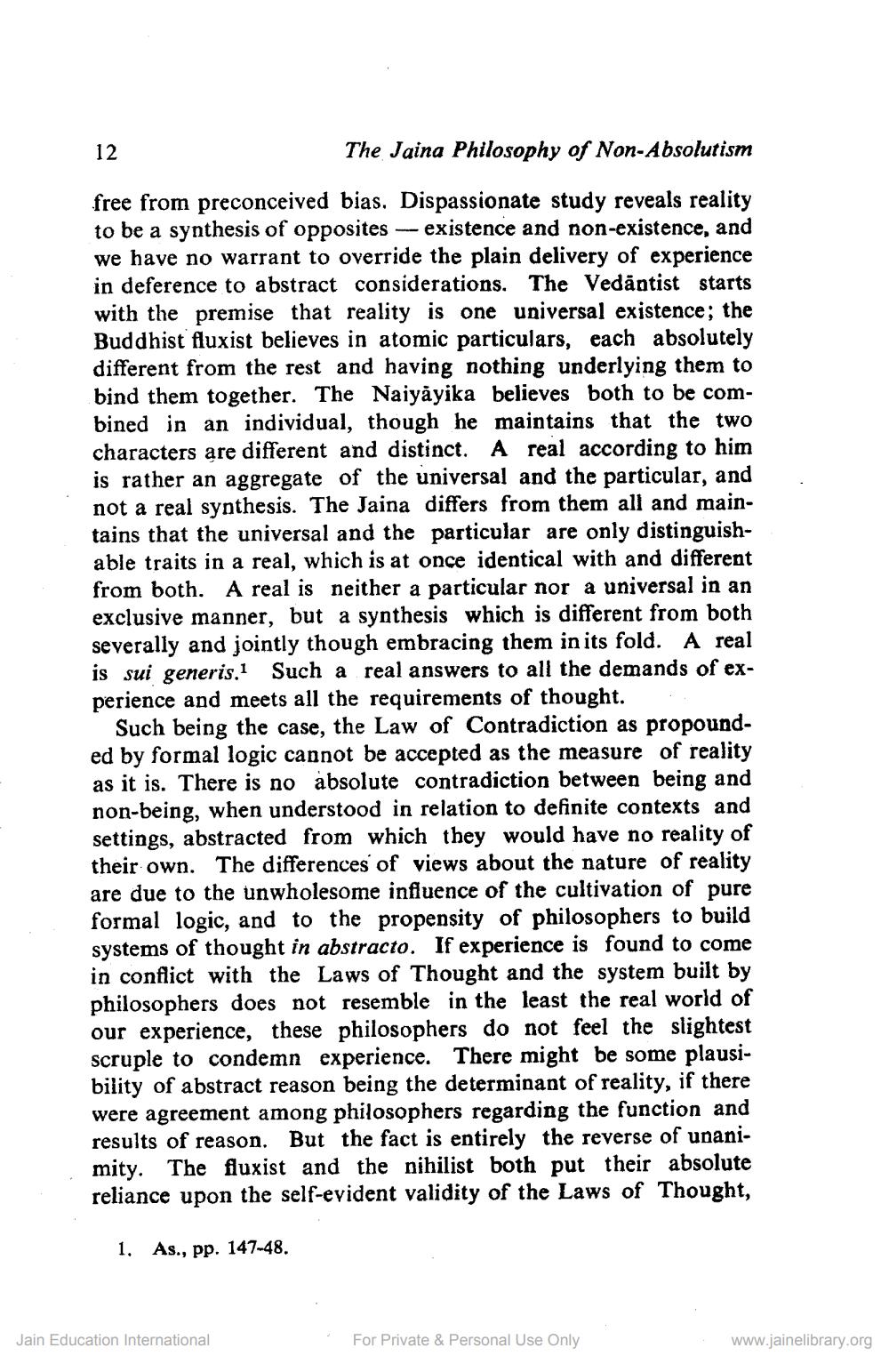________________
12
The Jaina Philosophy of Non-Absolutism
free from preconceived bias. Dispassionate study reveals reality to be a synthesis of opposites -- existence and non-existence, and we have no warrant to override the plain delivery of experience in deference to abstract considerations. The Vedāntist starts with the premise that reality is one universal existence; the Buddhist fluxist believes in atomic particulars, each absolutely different from the rest and having nothing underlying them to bind them together. The Naiyáyika believes both to be combined in an individual, though he maintains that the two characters are different and distinct. A real according to him is rather an aggregate of the universal and the particular, and not a real synthesis. The Jaina differs from them all and maintains that the universal and the particular are only distinguishable traits in a real, which is at once identical with and different from both. A real is neither a particular nor a universal in an exclusive manner, but a synthesis which is different from both severally and jointly though embracing them in its fold. A real is sui generis. Such a real answers to all the demands of experience and meets all the requirements of thought.
Such being the case, the Law of Contradiction as propounded by formal logic cannot be accepted as the measure of reality as it is. There is no absolute contradiction between being and non-being, when understood in relation to definite contexts and settings, abstracted from which they would have no reality of their own. The differences of views about the nature of reality are due to the unwholesome influence of the cultivation of pure formal logic, and to the propensity of philosophers to build systems of thought in abstracto. If experience is found to come in conflict with the Laws of Thought and the system built by philosophers does not resemble in the least the real world of our experience, these philosophers do not feel the slightest scruple to condemn experience. There might be some plausibility of abstract reason being the determinant of reality, if there were agreement among philosophers regarding the function and results of reason. But the fact is entirely the reverse of unanimity. The fiuxist and the nihilist both put their absolute reliance upon the self-evident validity of the Laws of Thought,
1. As., pp. 147-48.
Jain Education International
For Private & Personal Use Only
www.jainelibrary.org




